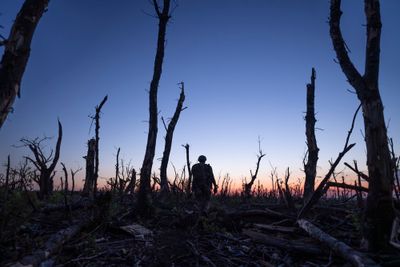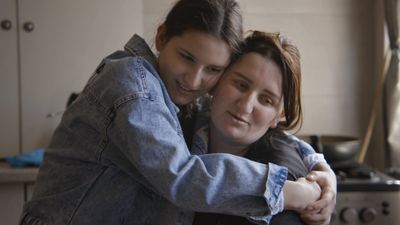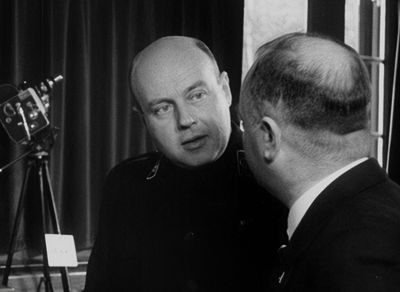Screenings of student films from by the Department of Directing Documentary of the Film and Television Faculty of the Academy of Performing Arts in Bratislava, will take place at IFDF One World 2025 and are open to the general public, including invited journalists. The event also serves as a presentation of the department for potential applicants. Therefore, it will naturally include an introduction to the opportunities offered by the FilmEU+ alliance for current and future students.
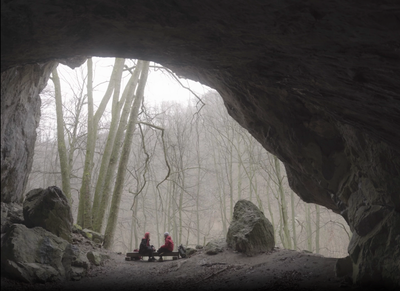
The documentary Confession opens up the topic of sexual harassment within the church, which the director herself personally experienced.
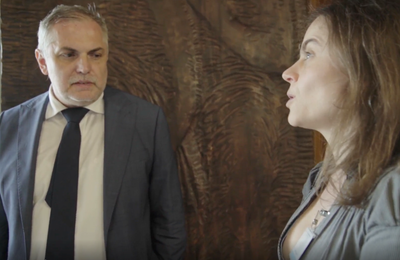
A documentary capturing the situation within a public broadcasting institution following the rise of a new political leadershipestablishment.
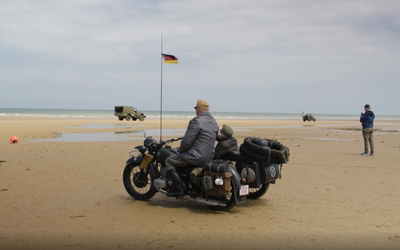
A socio-political travelogue following traces of fear and conscience in both present and past Europe: from the tightly guarded borders of the old continent to a nationalist demonstration in Warsaw, from the beaches of Normandy to May Day celebrations with trade unionists and anarchists, from the burning streets of Tbilisi all the way to the island of Lesbos – a symbol of hope for a dignified life for those fleeing war. The film meanders wanders through seemingly unrelated detours, constantly turning to the audience with the question: Is this truly “our way of life”?
A Ukrainian platoonʼs mission: traverse a heavily fortified mile of forest to liberate a strategic village from Russian forces. A journalist accompanies them, witnessing the ravages of war and the growing uncertainty about its conclusion.
Awards:
Directing Award in the category of World Cinema, Documentary – Sundance Film Festival 2025 in Park City & Sundance Resort, Utah (USA)
F:ACT Award – CPH:DOX Copenhagen 2025 (Denmark)
Best International Film in the International Competition – DocAviv Film Festival in Tel Aviv (Israel)
The screening of the film will be preceded by the grand opening of the festival, combined with the presentation of the Elena Lacková Award. The evening will be hosted by Katarína Strýčková.
The grand opening will be held in Slovak and will be interpreted into Slovak sign language and English.
The film will be screened in cooperation with the Ukrainian Institute.
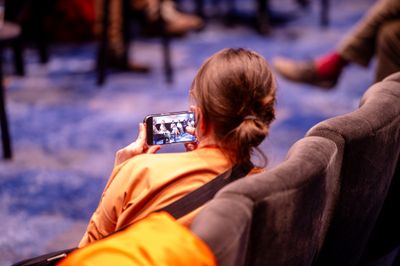
How does it feel to complete a new Slovak documentary film? How long does it take? What does a filmmaker take away from it, and what does it take away from the filmmaker? How does the filmmaker’s relationship to the subject evolve during the creative process? And once the film is finished, can they count on succeeding at international festivals? Join us for a live discussion, also broadcast on Radio Devín, with three documentary filmmakers whose films will premiere at this year’s One World festival.
Guests:
Tomáš Bača, director of the film Where the Stork Lands with Amália
Diana Fabiánová, director of the film Open
Andrea Kalinová, director of the film Replanted
Eva Križková, director of the One World festival
Hosted by Zuzana Golianová. The discussion will be conducted in Slovak and will be interpreted into Slovak sign language.
Screenings of student films from by the Department of Directing Documentary of the Film and Television Faculty of the Academy of Performing Arts in Bratislava, will take place at IFDF One World 2025 and are open to the general public, including invited journalists. The event also serves as a presentation of the department for potential applicants. Therefore, it will naturally include an introduction to the opportunities offered by the FilmEU+ alliance for current and future students.
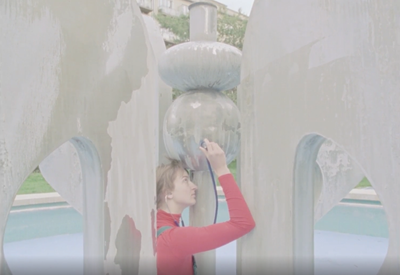
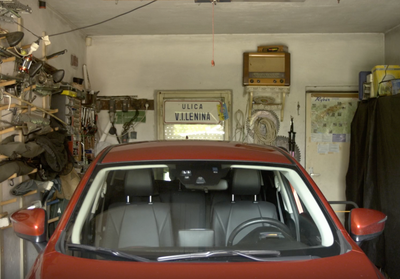
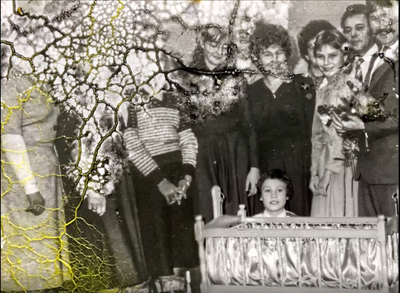
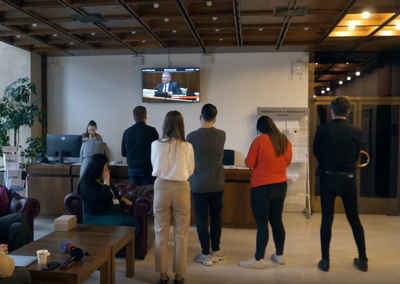
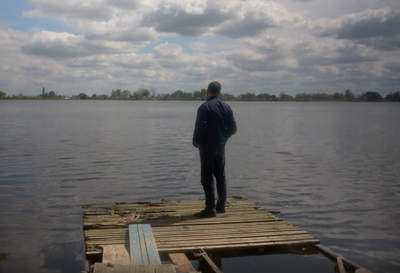
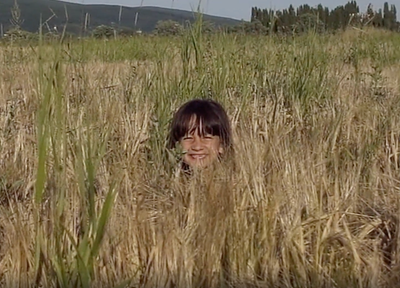
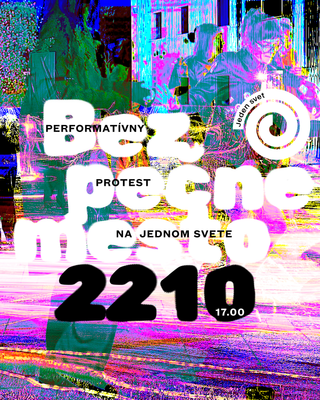
Date & Time: 22 October, 5:00 PM
Place: Velvet Revolution Square
To whom does the city belong? Join a dance-performance march through the city and experience what it feels like to walk the streets without fear.
Together we’ll learn a simple choreography that will become our shared language. We’ll walk, slow down, dance, and celebrate the idea of a city and a country where we all feel safe.
We protest, we dance, above all we come together.
A feminist city and an open country – may they be a human right, not just a wish.
Route: From SNP Square we’ll head together to the Lumière cinema.
After the march, there will be a screening of the documentary Million Moments, which follows the journey of the Million Moments for Democracy movement – from the mass protests at Letná plain to deeper questions of what truly matters. The screening will be followed by a discussion reflecting on the crisis of democracy and the role of civic initiatives in society. Do they stand a chance to change anything? And where is the line between civic activism and politics, and what happens if someone crosses it?
Guests:
• Mikuláš Minář, co-founder of the association A Million Moments for Democracy
• Amálie Kovářová, director of the film Million Moments
• Katarína Mišíková, Open Culture!
Hosted by Lukáš Osvald, People in Need
Tickets to the film: https://jedensvet.cinepass.sk/sk/tickets/?day=all
Choreography & Text: Zuzana Psotková / Music: Alex Gutrai & Ján Mikuš / Vocals: Ľudmila Klimková / Production & Protest know-how: Verona Němcová / Costumes & Visuals: Alexandra Tamásová, Verona Němcová / Concept: AW Team
A Georgian mother turns to surrogacy to secure a roof over her daughter’s head. What begins as a quick way to earn cash transforms into a profound sacrifice, questioning how far a mother can go.
Award: Human Rights Award – CPH:DOX Copenhagen 2025 (Denmark)
Olivia Popp, a member of the festival's international programming team, will introduce the film in English.
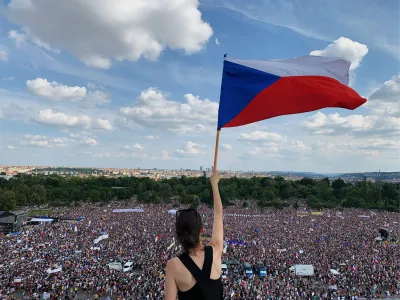
In 2019, almost three hundred thousand people gathered on the Letna Plain in Prague. They were demonstrating against the prime minister and the president, but above all, standing up for democracy. Two students who feared for the future of the Czech Republic addressed the crowd from a stage. This unique film about Mikuláš Minář and Benjamin Roll uncovers the gripping story of the founders of the Million Moments for Democracy movement. Director Amálie Kovářová spent six years capturing the behind-the-scenes of the group behind the largest political protest since the Velvet Revolution. It went through ups and downs, times of enthusiasm and lethargy, being showered with praise and disappointing its supporters. Mik and Ben experienced it all from the beginning. Two young men who believed that, even in the toughest moments, hope can prevail.
The screening will be followed by a discussion in Slovak and Czech with simultaneous interpretation into English:
How can we protect democratic values in a public sphere filled with polarisation, distrust, hate speech, disinformation, and ongoing crises? What role do citizens and initiatives such as Slovak Open Culture or the Czech association A Million Moments for Democracy, which have been mobilising the public to defend democracy, open culture, and European values, play in this? Do they stand a chance to change anything? And where is the line between civic activism and politics, and what happens if someone crosses it?
Guests:
- Mikuláš Minář, co-founder of the association A Million Moments for Democracy
- Amálie Kovářová, director of the film Million Moments
- Katarína Mišíková, Open Culture!
Hosted by Lukáš Osvald, People in Need
The event is part of the European project CLAD – Citizens & Libraries Against Disinformation, which aims to provide citizens in Slovakia and Portugal with tools to recognize disinformation. More information about the project: www.goethe.de/clad
.jpg)
“If a cat has kittens at the riding school, that doesnʼt make them Lipizzans”, reads a commentary in an Austrian daily on the naturalization case of director Olga Kosanović, which was picked up by the media. Demarcation creates a sense of identity and cohesion: a strong sense of “us”. What is the feeling and what social structures underlie it? Based on a personal experience, this film explores the emotive question of belonging.
Far from Being Lipizzans is nominated for the award Another Gaze.
Student jury about the film:
Documentary film Far from Being Lipizzans (Noch lange keine Lipizzaner, 2025) is an authorial project of the director Olga Kosanović, based on her own experience of obtaining Austrian citizenship. However, she doesn’t limit the topic to herself; through “talking heads” and authentic footage of people trying to obtain Austrian citizenship, she broadens the perspective to encompass the system itself. Her documentary skilfully and precisely intertwines national issues and concepts and applies them to Austrian identity, only to bring it to its knees. Thanks to the film’s humour and levity, the audience can enter the dialogue without the film feeling ponderous. The director employs bold colours and short dramatic sketches, as well as statements from Austrian experts on the issue. The film forces the audience to think about what defines our citizenship and how someone can be a mere stray cat when even the Lipizzan is not purebred.

On behalf of the ERIS [Climate Stories, we would like to invite film professionals and students to the first Slovak educational program "Climate Stories" on how storytelling in audiovisual media can respond to climate challenges and promote a sustainable future.
When and where?
Thursday, October 23, at the One World 2025 International Film Festival,
Kino Lumiére, Špitálska 2206/4 Bratislava,
from 9:30 a.m. to 4:30 p.m.
Who is it for?
The lectures and workshop are intended for people active in the audiovisual industry (film, TV, and animation) especially screenwriters, producers, and directors, but also students.
The event is not intended for the general public. Participation in the event is free of charge for professionals and students, but capacity is limited and registration is required via the form below.
Who will be there and what will the program be like?
The first Slovak "Climate Stories" workshop will offer a unique full-day educational experience on how audiovisual storytelling can respond to climate challenges and promote a sustainable future. The one-day program will feature lectures, discussions, and an interactive workshop with local and international professionals, creating a platform for knowledge exchange, professional networking, and the development of new climate-conscious creative projects.
First block: 9:30 a.m. - 2:00 p.m.
Lecture and interactive workshop on "green" storytelling - Andrea Culková (in Czech/Slovak language)
Andrea is a Czech documentary filmmaker, screenwriter, and director who addresses the climate crisis in her films and also educates others on how to approach this topic in audiovisual production. Her films feature striking visual and essayistic elements, addressing current issues based on subjective experiences. The lecture will be followed by a practical workshop where participants will try their hand at creating and incorporating environmental and climate themes directly into newly emerging stories.
An introduction to the topic of the climate crisis will be presented by Lucia Szabová (Climate Coalition), a long-time environmental and climate activist who is systematically involved in the fight against the climate crisis at both the local and global levels. Throughout her career, she has connected the public, the non-profit sector, and political decision-making with the aim of achieving fair and sustainable solutions for our planet.
Second block: 2:00 p.m. - 4:30 p.m.
Lecture with case studies "Towards sustainable screenwriting" - Lucie Trémolières (in English)
Lucie is a French screenwriter, consultant, and trainer in the field of green transformation of the audiovisual sector. She develops projects in various formats (film, television, theater, animation) with a particular focus on comedy and green storytelling. This lecture will focus on how screenwriting professionals and screenwriters can adapt their way of working to take into account the enormous changes taking place in the world, in our craft, and in our industry as a result of environmental crises. Using case studies—successful examples from the global audiovisual industry—we will discuss how we can address these issues in screenplays. We will also discuss how to anticipate eco-friendly production as early as the development phase.
The day will also include networking activities and light refreshments.
Register your place at this link by October 17, 2025 at the latest.
*The program is subject to change. If you have any questions, please contact us at info@erisclimatestories.org.
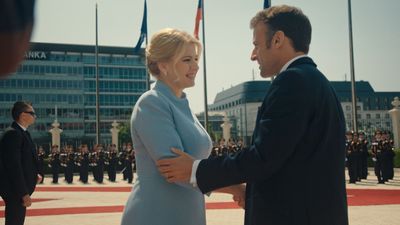
The documentary Ms. President captures Zuzana Čaputová’s tenure as President of the Slovak Republic. The filmmakers explore how decisions are made, how attitudes are formed, and how discussions with executive officials are conducted. What dilemmas does the President face with her team, and how does the role impact her personal life? What is the public’s perception of the president’s office? The documentary follows these processes throughout her entire presidential mandate.
 Superfilm.jpg)
Tsqaltubo, once a famous spa town in the Soviet Union, turned into Georgia’s largest refugee camp after the war in Abkhazia. Three decades later, the government attempts to restore its former glory and move most of the displaced families into new flat blocks on the outskirts of the town. The film focuses on the last residents of a sanatorium. Gia stays for her cats, Nunu for the plants and fragile remnants of nature that she tends. Through their tiny everyday rituals, they have built not just a home, but also a family connected by memories, resilience, and the hope of one day returning to Abkhazia. Leaving would mean severing their last tie to an idea of home.
The screening will be followed by a discussion with the director Andrea Kalinová and development specialist Boris Strečanský in Slovak language.
In the footsteps of a man with a camera. Using previously unpublished interviews, family films and propaganda films, The Propagandist tells the story of the rise and fall of filmmaker Jan Teunissen. As head of the Department of Film of the Dutch Nazi Party and SS and as leader of the Film Guild, he became the most powerful man in the Dutch film industry during World War II. What drove Teunissen to become part of the Nazi regime? A film about limitless ambition, alternative facts and the manipulative power of film.
The Propagandist is nominated for the award Another Gaze.
Student jury about the film:
In his chilling documentary film The Propagandist (2024), director Luuk Bouwman uses previously unpublished interviews and footage from family archives, and propaganda films by Jan Teunissen, a filmmaker and the head of the film department of the Dutch Nazi party and SS during World War II. The documentary constantly raises questions about moral values and what can and cannot be forgiven and glossed over with such phrases as “I did it to make films” and “I only did what I was told.” Historians Rolf Schuursma and Egbert Barten appear here as liaison officers between historical reality and today's (frustrated) viewers. The film serves as a warning, an extremely powerful one in today’s political climate, against the power of the media, which can be misused, and the dangers of art becoming an instrument of power.
The screening will be preceded by the Absynt at One World Ako vychovať nacistu (Education for Death: The Making of the Nazi) book launch
We invite you to the launch of the Absynt’s Slovak translation of Gregor Ziemer’s book Education for Death: The Making of the Nazi, an important testimony to Nazi pedagogy and the influence of ideology on the youth. The introduction of the new translation of the 1941 book will be accompanied by a discussion with historian Marína Zavacká, who specialises in the history of propaganda and the broader context of building regime loyalties in the 20th century. The discussion will give you an idea of the relevance and why you should read this book even after more than eighty years. The book provides insight into the mechanisms used by the regime in subjugating children and the younger generation by means of the education system, and how the regime imperceptibly and cunningly infiltrated schools, families, associations, and public discourse. Today, more than eight decades after its publication, it remains alarmingly relevant. Many of the mechanisms, which are described by Ziemer, resonate again in various forms in the contemporary world. We live in times when voices calling for “a more rigid order,” “discipline,” or “national pride” are once again being heard. We are again facing manifestations of authoritarian populism, polarisation of society, and targeted attacks on the educational autonomy. There are still political forces which deliberately exploit fear, seek enemies, prioritise “order” over freedom, and attack critical thinking as a subversive element.
Hosted by Michal Hvorecký.
The discussion will be held in Slovak.
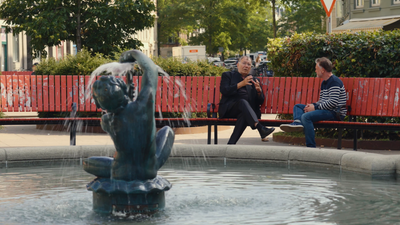
In the 1960s, Copenhagen was an industrial city dominated by cars. Today, it ranks among the best places to live. The documentary captures how visionary urbanist Jan Gehl and his talented partner David Sim transformed a neglected city into a space for people with pedestrian zones, cycling infrastructure, and vibrant squares. Through interviews with architects and planners, it shows that the principles of a “city for people” are universal and can also serve as a guide for cities in Slovakia. The film tells an inspiring story about the power of public spaces and proves that any city can undergo a similar transformation.
After the screening, Zuzana Duchová (editor-in-chief of Koncept magazine) will talk to the filmmakers Igor Bubeník and Jakub Otčenáš.
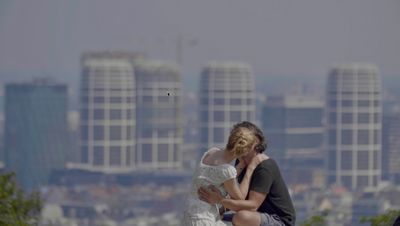
A love story without a filter. – In Slovakia, some things just aren’t discussed at home. Infidelity is either overlooked or punished. Honesty is mistaken for weakness. And monogamy? No one questions whether it is for everyone – it is assumed. The film Open untangles a relationship within one family and holds up a mirror to all of society at the same time. It is a story about a love seeking its shape beyond usual forms of cohabitation. Without a filter. Without shame. With heart.
The screening will be followed by a discussion in Slovak:
Slovak families are full of secret stories and silence, which influence our relationships more than we are willing to admit. The documentary film Open directed by Diana Fabiánová deals with sensitive matters of love, trust, and lies. After the film screening, weʼll try to define what family secrets mean for individuals and society, and how to start talking about them.
Guests:
Diana Fabiánová, director of the film Open
Helena Tužinská, anthropologist
Magdalena Frecer, psychotherapist
Hosted by Katarína Strýčková.
As part of the campaign for the film Open, we are collecting anonymous secrets from Slovak households to reveal what people most often keep in silence. You can participate via a secure form at http://bit.ly/4gHIUTF.
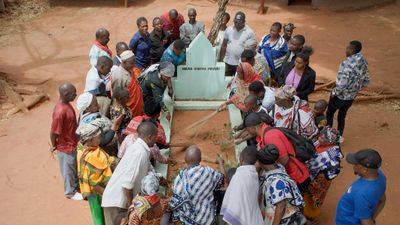
Songea, Tanzania. The young lawyer John Mbano in on a mission. His great-grandfather Songea Mbano, a leader of the Ngoni people, was executed by the German colonial army. His head was taken to Germany for racist research. The family is haunted by this pain to this day. John and his wife Cesilia embark on a life-changing journey. Their research and resilience culminate in a courageous decision—to travel to Berlin in search of their ancestorʼs remains. There, they join forces with activists challenging Germanyʼs culture of denial. What follows is a rollercoaster of triumphs and setbacks. Not even the historic visit of Germanyʼs Federal President to Johnʼs hometown heralds the return of their beloved ancestor. Yet, the Mbano family refuses to relent... “The Empty Grave” offers a personal angle amidst the global discourse on repatriation. Beyond the debates lies the poignant tale of violated lives and the struggle for a future disentangled from a painful past.
Olivia Popp, a member of the festival's international programming team, will introduce the film in English.
